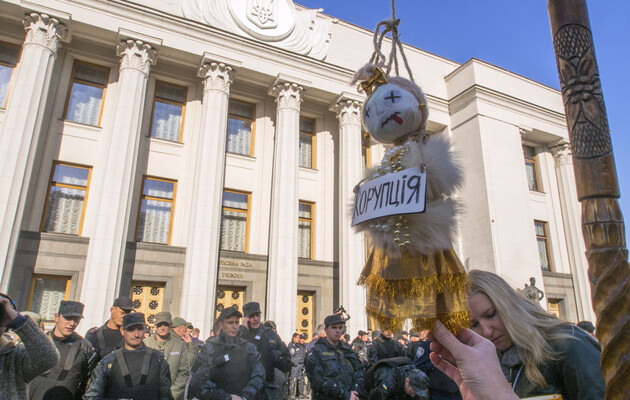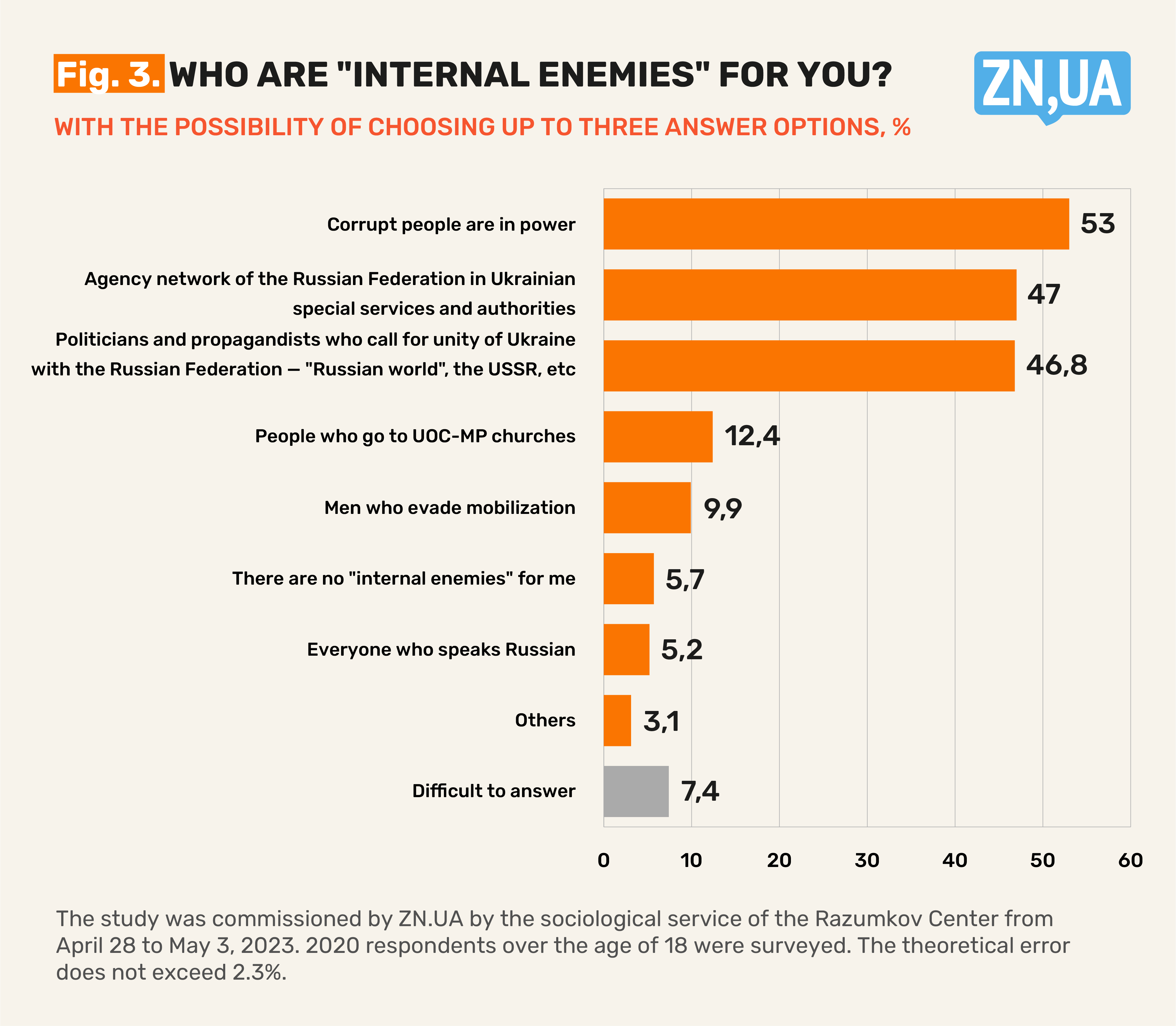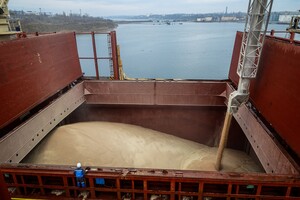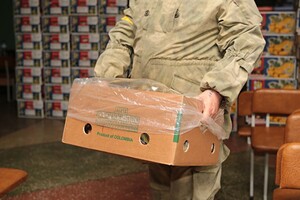The main internal enemies of Ukrainians are corrupt officials in power. Politicians who work on Bankova Street, are you sleeping?
"This is not relevant! We will ask these questions after the victory! First of all, we must defeat Russia in the war! Because of you, partners will not help us! These are not whistleblowers of corruption – they are hostile psychological operations (PSYOP)! Another attempt to discredit the country! Moscow lice are not so terrible..." – this is how users of the social network react to every corruption scandal since the beginning of the full-scale invasion.
But corruption does not just distance us from victory, it threatens it. So is this question really not relevant now? We asked the Ukrainians themselves about this as part of a survey recently conducted by the Razumkov Center on behalf of the ZN.UA publication. It turned out that social networks are not so focused on expressing the opinions and views of society, the myth about their ability to represent the real opinion of society has been refuted once again.
Thus, 84% of our fellow citizens are convinced that "the facts about corruption should be made public, because through corruption we will lose unity, the support of partners, and, ultimately, victory" (see Fig. 1). This option was chosen by the overwhelming, super-constitutional, majority, answering the question "In your opinion, if facts of corruption in the authorities are discovered, should such facts be made public?". The percentage of those who chose the answer option "It is not worth it, because it is not currently relevant, as long as the war is going on, it will destroy the unity of efforts and reduce the chances of victory", turned out to be even smaller, and the percentage is (7%) for the share of respondents who chose another option, namely "Difficult to answer" is (8.7%).
Imagine now, dear officials, how your messages about "Russian hostile psychological operations (PSYOP)" and "massive informational attacks on the department" are actually perceived by society in response to any critical information. You need to realize how comical and inadequate it looks every time, how much irritation it causes and confirmation of what problems such a reaction actually is. The government's traditional inability to communicate openly and admit mistakes is a flaw that should be addressed now. To endure does not mean to accept, to endure does not mean not to see. The government hopes in vain that its place at the top of the ratings will remain unshakable in the future, this is only the result of the model that society chose for a better state of affairs in the country during the war. This model is changing.
Society's request for a national anti-corruption portal has been formed. It is a consequence of our past and a guide for our future.
We asked Ukrainians, based on personal experience, to estimate how the number or size of bribes that have to be paid has changed compared to pre-war (see Fig. 2). Judging by the answers, citizens are not outraged by "petty" corruption. According to their observations, only bribes to military commissariat employees increased significantly (by 20.7%). It is time to mention the Odesa military commander who owns real estate in Spain and a premium car. It is also worth mentioning one and a half hundred of his associates, whom the president demanded to be sent to the front. However, the head of the president's office, whose authority includes monitoring the execution of presidential assignments, was very busy with other people's powers. Also, bribes to doctors increased by 16%, which can also be explained by "military commissary" issues, by 14% to local officials, probably for solving the problems of internally displaced persons, by 13% to customs officers who "support" our business as best they can. People see everything and understand everything. Usually they tend to hide their awareness of corruption processes, so that sometimes they are not suspected of bribery, but corruption in wartime is looting. It is difficult to hold back the indignation at the fact that while some people give their last funds for military equipment, other people calmly and without remorse take bribes.
But what is telling is that the percentage of those who generally come across facts of corruption in everyday life is not so significant, if we are not talking about doctors (only 39% indicated the absence of "corruption" experience). Of course, we are still very far from what is desired, but according to other components, the indicator of "lack of corruption experience" is pleasantly high, namely, on average, three out of five Ukrainians have not come across facts of bribery in their everyday life.
However, in response to the question "Who are the "internal enemies" for you?" 53% of respondents clearly indicate that these are corrupt officials in power (see Fig. 3). Even the option "Agency network of Russia in Ukrainian special services and authorities" was chosen by 47%. The option "Politicians and propagandists who call for the unity of Ukraine with Russia, namely with the "Russian world", the USSR, the Russian Empire" received 46.8%. Respondents had the opportunity to choose three options out of nine, but even under this condition, the answer about corrupt officials in power gained the largest number of percentages.
In fact, it is quite a predictable consequence of mass disappointment that for a part of society, the full-scale war that is taking place in our country has not changed the state of affairs. The authorities, calling on the country to act as a united society and to jointly do everything possible for victory, somehow forgot that "acting unitedly" also involves its involvement. Stories about mistress companies that consistently win state procurements, the presence of "convenient" heads of state companies for state leaders, and the presence of friends and acquaintances in controlling state bodies, were familiar to Ukrainian society until 2022. In addition, before the outbreak of war on the territory of Ukraine, such a problem as the existence of a stage of corruption was also inherent, when the methods of information transmission and means of communication lose their original purpose and begin an independent existence as state-legal institutions, simultaneously acting as a lever of administrative influence. It is also worth noting that before the war, the existence of various corruption schemes that allow government officials to dishonestly manage public funds was a frequent phenomenon. But after 2022, it is very difficult to tolerate them. If the people of Ukraine need to act as a united and reliable society, then why do some members of this society not want to fulfill the duties assigned to them with quality?
All citizens pay too high a price for some of the officials to have the opportunity to live "as before". People "in power" – after all, government officials are mentioned in two of the three most popular answers. The third – pro-Russian politicians – the opposition, which the same government does not hesitate to use from time to time for its own purposes, for example, compensating for the inability of its own monomajority in the Verkhovna Rada of Ukraine.
As you know, the more power you have, the more responsibility you have and the more questions you need to answer. Thus, after the end of the war, to whom will the claims of citizens who consider corrupt officials in power to be their greatest enemy and demand immediate exposure of their devices be directed? Try to guess in one try.
Volodymyr Oleksandrovych, if you concentrate in your hands all possible levers of influence, from representatives in the parliament to law enforcement agencies, from the government to judges, both at the central and regional levels, not a single telethon will help to renounce the enormous personal responsibility for everything that happens in the country
Even if the real pre-war influence of the president on the processes was not so comprehensive, he did everything to maximize it after February 24. But the public's fascination with the president is fading, because his popularity is based mostly on low pre-war expectations, which did not come true when Zelenskyy "didn't flee" the country when the large-scale invasion began. Let's not simplify: President Zelenskyy has done and continues to do a lot for our victory. But, as we can see, society notices not only this, but also the fact that Zelensky did not complete the same number of tasks during his tenure as the President of Ukraine as he has already completed.
According to ZN.UA, and according to the sociology that Bankova Street regularly conducts for itself, Zelenskyy is no longer at the top of the list of those whom society trusts the most. There are already those persons who bypassed him. Since the politicians working on Bankova Street have never stopped thinking about the elections, perhaps they will be a good reason for the president to change the concept, and therefore the personnel policy. If not for the sake of preserving the country, then, maybe, at least for the sake of self-preservation.
Society reacted emotionally to the story about inflated prices for the purchase of food for the Ministry of Defense of Ukraine, because everyone who visits the store is an expert in this matter. But other corruption stories created by officials, which ZN.UA wrote about, certainly did not escape the public's attention: schemes for road maintenance, coal schemes, "grain" schemes, schemes conducted by the Economic Security Bureau of Ukraine, conspiracy in the electricity market, etc. This list goes on and on...
Very soon, when the civil society recovers from the war, both the people and the Western partners will talk not only about the inflated food prices in the ministry. There is not much time to change something, but there are many opportunities, what to do is also obvious. The president can determine who should be replaced based on the factor of which of the officials has broken the rules more.
Ignoring society's need for the creation of a national anti-corruption portal, usually focusing only on social networks, is political suicide, because you cannot attribute the creation of psychological operations (PSYOP) to all social networks. Similarly, the desire of Ukrainians to survive and live well cannot be ignored.
The optimism of our citizens is touching (see Fig. 4). When answering the question "Is Ukraine able to overcome existing problems and difficulties?", more than 46% chose the option "Able to overcome within the next few years", and 37% chose the option "Able to overcome in a more distant perspective". Only 7% of respondents do not believe in our ability to get out of the current crisis.
Of course, the reason for such optimism may well be a lack of knowledge about the real state of the problems. Also, the reason for this can be the experience of previous survival in difficult circumstances, which we have for generations and, yes, it is positive.
The patriotism of our citizens is inspiring. Despite the most difficult period in their lives, all kinds of losses, fatigue, despite countless personal tragedies, do you know what the majority of the surveyed Ukrainians would ask God for? Would they ask for their well-being? No, only 5.4% of respondents would do so. But 34% would ask God to help Ukraine survive all the trials. Another 29% would ask for help to the soldiers defending Ukraine.
A society that puts the interests of the state above personal interests will expect the same from the government. The terms of the previous social contracts, according to which society should not interfere in state affairs, and the state should pay almost no attention to society, or another contract according to which government officials wrote reforms that no one was going to implement, will be significantly revised to the point of being recognized as incorrect.
For years, the main scarecrow for corrupt officials was Western partners who constantly demanded something in exchange for money. It was always possible to refuse the money, and to fool the partners, turning another reform into a profanation at best, and a new scheme at worst. Domestic politics suffered little from this, because within the country the need to create an anti-corruption portal was supported only by caring activists from the public sector. Society in general did not care much about the creation of an anti-corruption portal. A year before the war, Ukrainians considered housing and communal tariffs to be the main problem. Now you can feel how dramatically everything has changed. Therefore, such changes will not remain without consequences.
If the current government ignores the current request for anti-corruption changes, it is unlikely to last long, despite all possible military exploits. And if the president does not begin to get rid of the accumulated influence in and around all branches of government, he will bear personal responsibility for each and every corrupt individual.
It is clear that this is not what Zelenskyy wanted, building a mini-Russia here with his personnel policy and desire to control everything. Even if you start scrupulously understanding some problem, all the ways regarding its occurrence lead to Bankova Street. Zelenskyy probably dreamed of a flourishing business founded with entrepreneurs close to him, and the possession of unlimited flows of funds, and controlled regulatory authorities, and media resources that will only praise him, but... To get Russia, you need Russians. With Ukrainians, fortunately, everything is always more difficult.
All the data mentioned in the text are the results of a sociological survey by the Razumkov Center. The survey commissioned by ZN.UA was conducted from April 28 to May 3, 2023, using the face-to-face method in 22 regions of Ukraine and the city of Kyiv. 2020 respondents over the age of 18 were interviewed. The theoretical sampling error is no more than 2.3%.
Please select it with the mouse and press Ctrl+Enter or Submit a bug




















 Login with Google
Login with Google